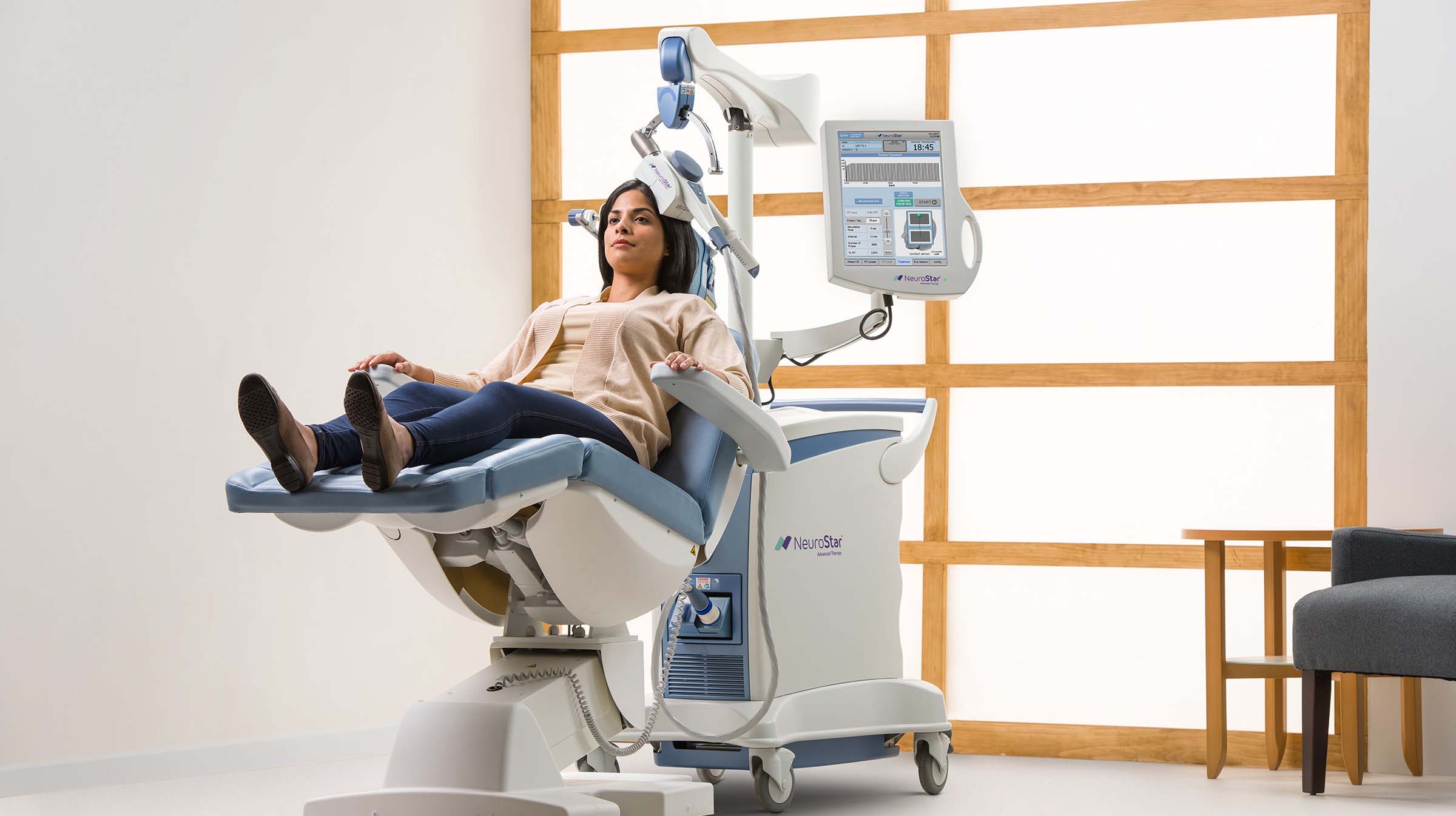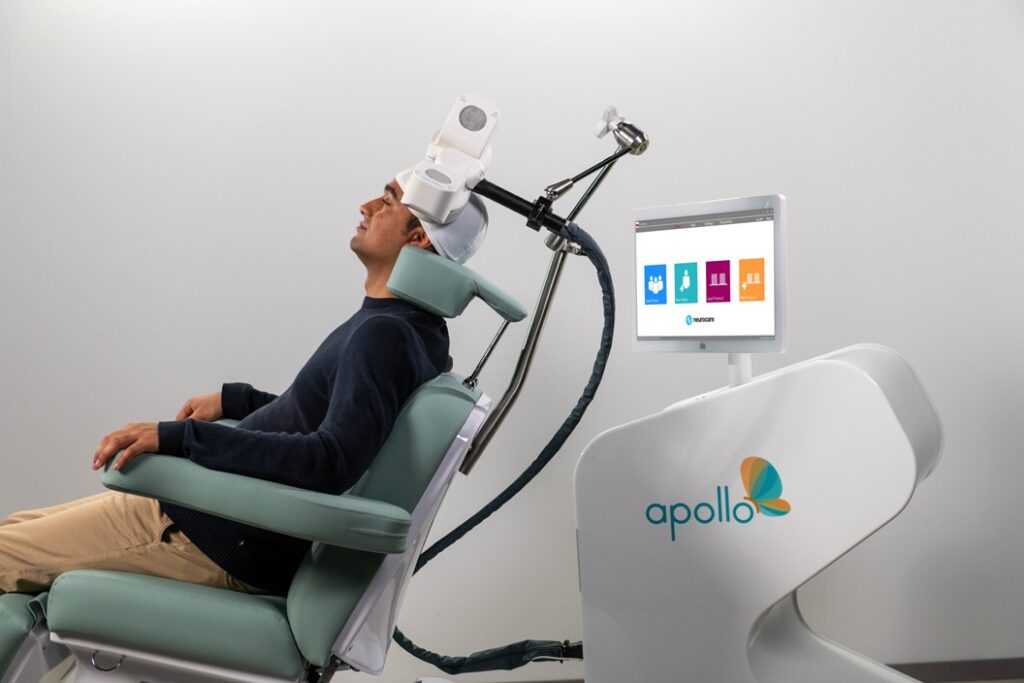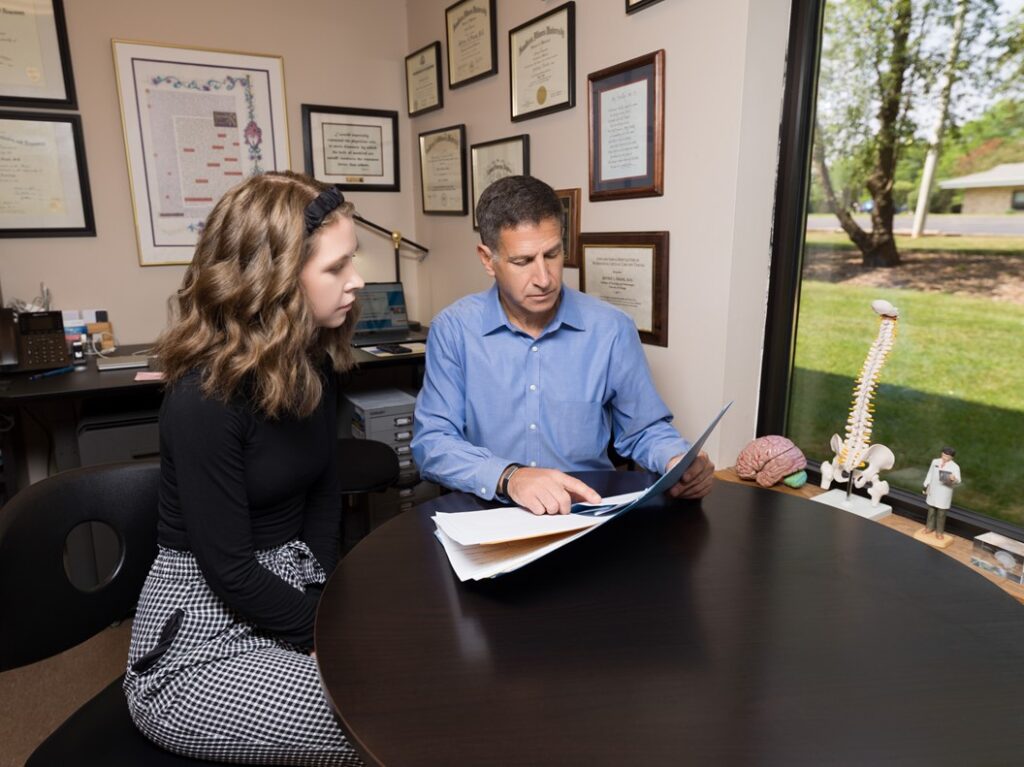TMS: Non-invasive treatment for depression



If you have been looking into whether TMS is right for you, you have taken the first step. Now, the next step and most critical step is to find a doctor with genuine expertise and professional integrity who can help you properly consider TMS. Dr. Frank is not like any other provider. In contrast to most other providers, Dr. Frank is closely involved with you from beginning to end. You get to know him personally, and he is dedicated to your well–being and improvement even long after your TMS is completed.
Dr. Frank:
- Is very knowledgeable about the brain and the underlying neurophysiology and neurochemistry of mental health problems and TMS
- Will be the one to help decide if TMS is right for you
- Will interact with your present health care providers to promote a team approach to your care
- Will passionately advocate on your behalf to achieve insurance coverage for your treatments, when possible
- Will be flexible with your TMS schedule so that it will be least disruptive to your life
- Will be the one to determine where on your head/brain to treat you (who better than a neurologist, right?) and how to provide the TMS so that it will be most effective for your problem
- Is well-respected by colleagues who send him the most complex patients for consideration of the potential benefits of TMS
Because of Dr. Frank’s special expertise and approach to TMS, patients travel from near and far for their treatments. This is because patients (and their doctors) who have properly investigated TMS understand that there is far more to TMS than placing magnetic coils on the head. It matters who helps decide if it is right, who designs the treatment, how the treatment is delivered, and who delivers it.
The closest TMS provider is not necessarily the best provider for you, and the stakes are too big to take a chance. If you have contacted a TMS provider and they have gathered information and authorized you for treatment without an TMS-experienced doctor ever meeting you in person, beware. This is not a thoughtful way to practice medicine and decide on the best treatment pathway for an individual patient.
In contrast, Dr. Frank can be trusted to be honest and thoughtful about whether it is a
reasonable treatment alternative for you through an un person consultation and examination followed by discussions with your other health care providers. So, if you are ready to take the next step, contact Dr. Frank.
What is TMS?
Transcranial magnetic stimulation (TMS) is a noninvasive procedure that uses magnetic fields to stimulate nerve cells in the brain to improve symptoms of depression, obsessive compulsive disorder, and holds promise for the safe treatment of many other psychiatric and neurological disorders.
During treatments, a small electromagnetic coil is placed against the patient’s scalp near the forehead. The device delivers repetitive magnetic pulses, like those used in MRIs, to stimulate the nerve cells in the target region – most often the dorsolateral prefrontal cortex (for depression). This is a brain area involved in modulating mood control and emotions that is often impaired in patients with major depressive disorder. Studies have found high-frequency TMS can result in heightened brain activity in the target area, basically “waking up” the sluggish brain region partly responsible for some of the most disabling symptoms of depression. However, it can also be administered in other sites to benefit other disorders.
- Treating patients requires administering the TMS for multiple treatment sessions.
- TMS uses precisely targeted magnetic pulses
- These pulses are like those used with MRI
- The treatment stimulates key areas of the brain that are underactive in patients with depression
- It is conducted in the doctor’s office and each treatment typically takes about half an hour to administer
- Patients are awake and alert during treatment
- Patients can go back to their normal activities immediately after treatment
- There are typically 36 total treatments provided over a 9–12-week period
- There is an Accelerated TMS protocol that can be employed to more rapidly achieve benefit in selected patients
- The treatment is only available with a doctor’s prescription
Dr. Frank is a unique treater applying this technology based on his:
- Extensive neurological expertise as a neurologist (brain specialist)
- Hands-on approach to the pretreatment comprehensive medical and neurological
evaluation - Collaborative approach, working with your other health care providers
- Intense presence with all the treatments, allowing closer monitoring
- Lasting connections with his patients long after the completion of treatment
When Dr. Frank is involved, you are under the guidance of a real brain expert with compassion and unparalleled commitment to the well-being of his patients.
During the treatment process, Grace is a key partner in the care delivery. Grace has a wealth of healthcare experience, and she is authentic and empathic in her approach to every patient. Through their regular communication and planning, Dr. Frank and Grace work seamlessly to optimize the outcome for every patient. Patients are referred to Dr. Frank for TMS by physicians, psychologists, social workers, or selfreferral.
If you have questions about TMS, please contact us for more information


